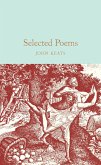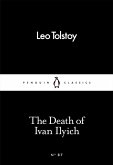Jan Kochanowski (1530-1584) is not only the greatest Polish poet before Adam Mickiewicz, he is also one of the great figures of the European Renaissance. Over the space of his rather brief life, he excelled in every literary genre he attempted: secular lyric poetry and religious hymns, drama, pithy satires in the vein of Martial, and translations from both the Bible and classical literature. While being the first major voice to shape the modern idiom of Polish, he also wrote in Latin, for which he was recognised abroad by literary lights of the calibre of Pierre Ronsard.
Although little known today outside his country, this anthology of his works translated by Charles S. Kraszewski brings the English reader a wide selection of his literary output in verse, drama, and prose. Generous selections from the Horatian Songs and satirical Trifles accompany the full text of his great humanist drama The Dismissal of the Grecian Envoys, which had its English premiere in 2019 on the boards of Shakespeare's Globe Theatre in London. Kochanowski is mostly famed for a work he wished he had never written.
These are the Threnodies, a cycle of poems mourning the loss of his little daughter Orszula. It has been said that in this cycle, in which a grieving father so eloquently gives vent to his sorrow at the loss of his child, Kochanowski re-invented the genre of lament, which by his time had become a pallid, formal exercise in writing, devoid of the heartbreaking emotions introduced here by the Polish master. The full cycle of the Threnodies, in Kraszewski's completely new translation, is here printed for the first time.
Although little known today outside his country, this anthology of his works translated by Charles S. Kraszewski brings the English reader a wide selection of his literary output in verse, drama, and prose. Generous selections from the Horatian Songs and satirical Trifles accompany the full text of his great humanist drama The Dismissal of the Grecian Envoys, which had its English premiere in 2019 on the boards of Shakespeare's Globe Theatre in London. Kochanowski is mostly famed for a work he wished he had never written.
These are the Threnodies, a cycle of poems mourning the loss of his little daughter Orszula. It has been said that in this cycle, in which a grieving father so eloquently gives vent to his sorrow at the loss of his child, Kochanowski re-invented the genre of lament, which by his time had become a pallid, formal exercise in writing, devoid of the heartbreaking emotions introduced here by the Polish master. The full cycle of the Threnodies, in Kraszewski's completely new translation, is here printed for the first time.
Dieser Download kann aus rechtlichen Gründen nur mit Rechnungsadresse in A, D ausgeliefert werden.









